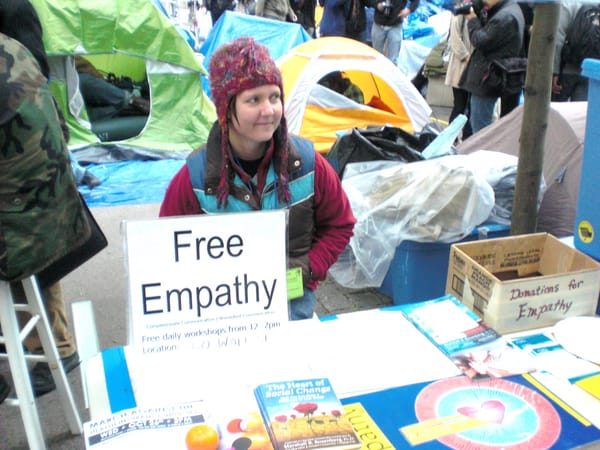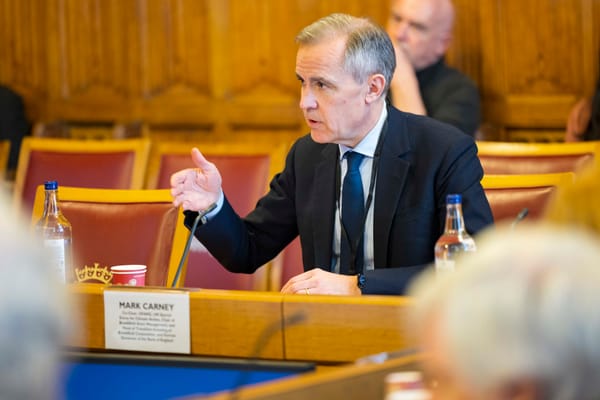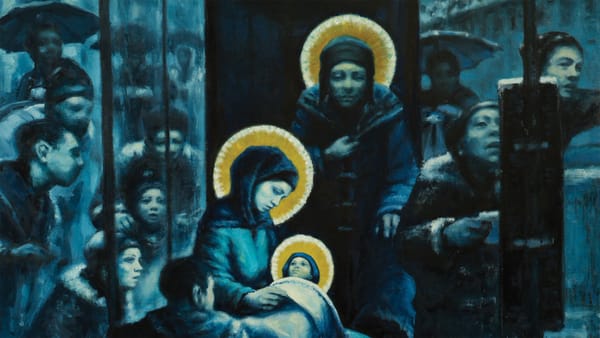Why I’m not pinning my hopes on Your Party, or any other
A guest post from Cooperation Hull organiser Gully Bujak on why we need a people-led approach to our political problems.
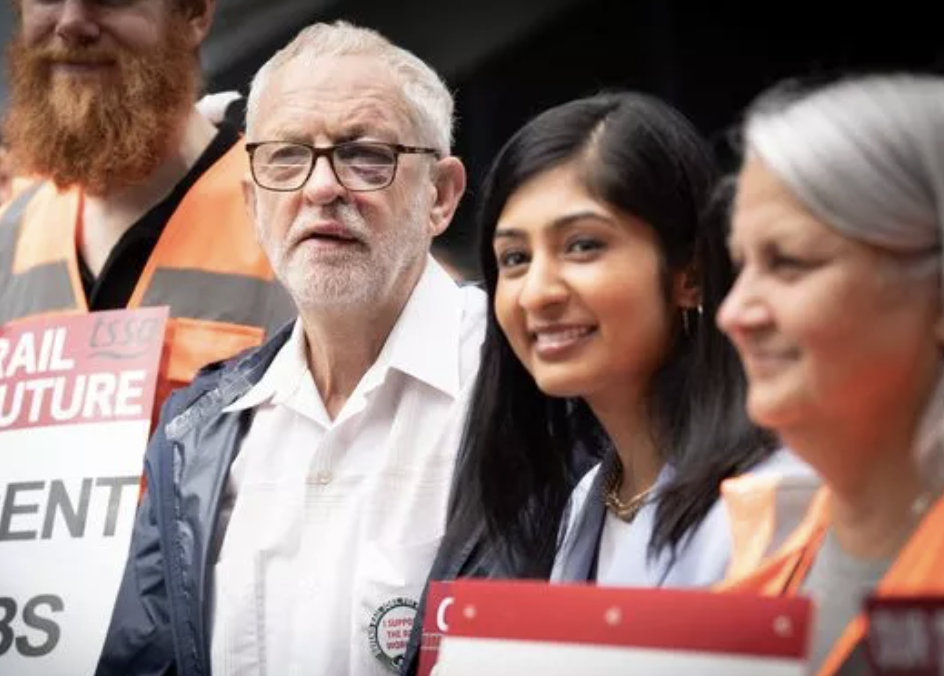
Not too long ago I would have been queuing up to support Your Party, but years of fighting for a better world have moved my goalposts dramatically. Now I don’t think we should pin our hopes on any political party.
They have a part to play. But in surrendering so much of our hope to their rise and fall we are not just abdicating our own rights and responsibilities, we are also shooting ourselves in the foot.
Because no political party can do what must be done if we are to survive the collapse of our biosphere and the tyranny of billionaires: transform how society itself functions and how each of us sees our role within it.
Social media comment sections have careened from jubilation to dejection as the swift ascent of Your Party has deflated under the conflict between its leaders. It’s a conflict which baffled many, but shouldn’t have. Politicians struggling to get along even within their own camps, let alone between parties, is not surprising when we look at the culture they are supposed to represent: one which obsesses over difference and disagreement and where our tolerance for each other has diminished in accordance with the amount of time we spend together, face to face, doing meaningful work. Despite this, many followers have expressed similar levels of shock and desperation, stating that Your Party was the ‘only hope’ of fighting fascism, of building a progressive movement or of fixing x or y crisis.
Desperation across divides
It’s similar to the desperation I encountered at a sold out Reform UK conference in Hull during the Mayoral elections this spring, where 4,000 people queued round the block to listen to Nigel Farage. I stood outside with other members of Cooperation Hull, speaking to people in the line, trying to understand their motivations and connect on a human level across divides. The people we spoke to were from a wide array of backgrounds (including one proud racist extremist and one former Labour-voting nurse) but what they shared was a desperation for that most elusive of promises: change.
In response to me pointing out that Farage is a millionaire and wondering what we could expect him to do for the people of Hull, one man said:
“I know he is. I know he’d stand on my neck in a heartbeat. But at least he might actually change something.”
Your Party promises change too, but it’s time to acknowledge the truth: in order to change politics and our society for the better, we have to change ourselves. The reason neoliberalism has been so successful is because it didn’t just change the economy or destroy the institutions that held us together, it “changed our soul” (to use Thatcher’s own words). It iterated the psychological severance of the enclosures. Then our ancestors were ripped from the land and from communal life by physical boundaries, now we are torn from each other again through the destruction of our institutions and the spaces that brought us together, to create the next generation of Brit: an isolated, stay-home-and-trust-noone citizen of nowhere.
The race to construct a new economy, new institutions to hold us together, and a new kind of citizen is the real fight we need to be focused on, and our streets, schools, libraries, churches and neighbourhoods are the places where we will truly win or lose.
Building Cooperation Hull
This is why I’ve spent the last two and a half years starting Cooperation Hull, an experiment in building alternative democratic and economic structures from the ground up, using people’s assemblies and the myriad tools of a ‘solidarity economy’.
What I’ve learned is that we have a steeper learning curve than most of us realise. The depth, breadth, complexity and urgency of our intersecting crises means that a political party can never be the be all and end all. Why?
When we show up to an assembly with neighbours we’ve never met, to talk and debate and decide something together, we transform what it means to live in a democracy – from a reliance on far-removed politicians who will never meet all our expectations, to a reliance on each other, a way of relating far more tolerant of fallibility When we align on what we all need (like healthy food and connection and financial safety nets) and initiate a solution ourselves (like pay-what-you-can community restaurants and savings clubs) we undermine narratives of division and remember that we have power when we work together.
Crucial to all these things is the practice of making decisions together that reach far beyond the narrow opportunity to cast your vote at an annual conference or an election. This is a responsibility we cannot afford to forsake any longer. Because even if the party of your choice were elected, what then? What will sustain you and your community, day to day, through the hard times and the good, whilst the party of your choice attempts – and fails – to make the scale of change we need from within a broken system?
The foundations for a national project
A unifying, national project is needed. But what’s more desperately needed is a strong foundation to build it on. The idea that we can just sit back and let someone else solve our problems for us is a lie. And if we don’t shake off this lie and reclaim our own rights and responsibilities as citizens, we’ll lose the battle for the future, no matter what happens in Westminster. Thankfully, the vocal membership of Your Party seem to be giving voice to this broader need. What frightens me is the mindset of the rest of us, pervasive across the political spectrum.
Swapping fear for action, mutual aid projects can be found operating in the periphery of every town and city. With deliberate attention and a mindset shift, these practices could flourish into cultural norms and functional networks that meet more and more of our needs.
- Networks of allotments to feed each other, and undercut exploitative, just-in-time supply chains.
- Networks of savings clubs to lift each other out of hardship, and combine to offer real capital, owned and distributed by the people.
- Networks of community restaurants, collectivising their need and their purchasing power and going direct to local farms.
Doing it ourselves
A political party may well be the tool we need to represent these mycelium networks in parliament, but we can’t let ourselves be disempowered simply hoping they will grow them for us. We have to do this ourselves, in our neighbourhoods, where we live.
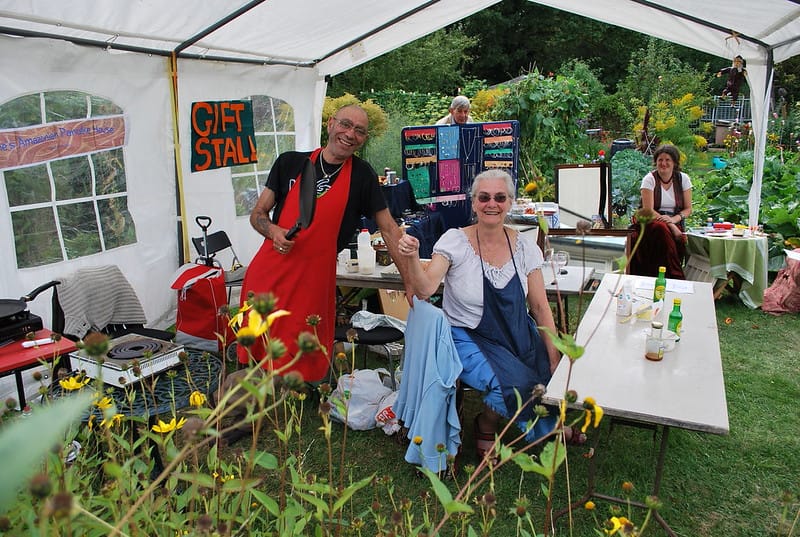
The desperation present in today’s politics is borne from a perceived lack of options. But this perception is false. Whilst most of us live in a maze of seemingly endless choices for what to eat, wear, buy or where to travel, we have starved ourselves of imagination when it comes to something far more vital: how we choose to live together on this precious, finite earth.
The good news is we don’t have to look far for inspiration. There are alternatives to our housing system, food system, banking system, political system and everything else already growing just beneath the surface and fighting for oxygen. If we put less emphasis on individual leaders and political parties, we might just create room for them to breathe.
Elsewhere in Absurdity...

- CLIMATE RECKONING: Dr. James Hansen & Clare Farrell. This morning (Friday) our Clare Farrell was live from Finland in conversation with renowned climate scientist, Dr James Hansen. Hansen presented evidence of how the climate science community has systematically underestimated both the speed and scale of climate change. Together they explored why current climate projections ignore many critical signals and what this means for the climate situation – and what we can do to address the problem. You’ll be able to catch up with the livestream here.
- A happy birthday ❤️🎈 to 0ur Nuala, currently on maternity leave 🧑🏻🍼;
- Many of us were at Hard Art on Wednesday to hear Karim from Gaza Sunbirds speak so beautifully about the story of Palestine’s para-cycling team and the incredible persistence and optimism of their members under a genocide (see video below), as well as Kumi Naidoo speak (and sing) just as eloquently about the need to mobilise in and through arts and culture if we are really going to tackle the shitshow we face;
- And next week we’ll have full updates from The Fête of Britain in Liverpool and the Hey! Festival in Newhaven – you can hear Nicholas Royle reading his short story ‘Upport’ that was performed at the festival.


